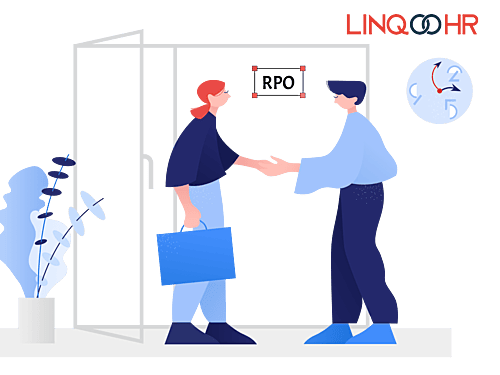
Finding the right skills for the company is a continuous and challenging task in today’s competitive business environment.
Using a Recruitment Process Outsourcing (RPO) provider enables the company to streamline talent acquisition while the company and Human Resources focuses on its core business.
An RPO provider can take responsibility over all or selected recruiting processes and systems, methodologies and reporting. They can often be found located and operating on company premises with the main focus on external hiring.
Here, we provide 5 main benefits of using an RPO provider for recruitment.
Reduction in Recruitment Costs
Besides the normal costs of recruitment there can be considerable costs associated with the time to fill vacant positions. The latest talent acquisition benchmarking report of Society for Human Resource Management (SHRM, 2017) indicated that average time to fill a vacancy is 36 days, which results in loss of productivity and efficiency during this time.
An RPO provider can address this challenge by streamlining the recruitment process using their expertise combined with detailed analysis of job specifications, job descriptions and competencies according to the requirements of the company (Bhakhar and Poonam, 2020).
An RPO provider properly engaged can decrease overall recruitment costs as their ultimate goal and focus on the time to hire, cost to hire, the quality of the candidates plus continually streamlining recruitment processes.
Scalability and Targets
An RPO can enable companies to upscale or downscale talent acquisition as well as collect and utilise data analytics leading to time and resource savings.
Companies with rapid growth rates can experience difficulty in forecasting their hiring needs and the agility of an RPO could ultimately deliver quality candidates and greater cost-effectiveness. These combined with the appropriate delivery targets in place for an RPO can help with measuring improvements and cost savings in recruitment delivery.
A Consistent and Foreseeable Talent Acquisition Process
Candidates can be disappointed when they are not aware of where they stand in the recruitment process. This can be the result of internal confusion or simply a lack of communication with candidates. According to Glassdoor recruitment statistics (2020), 58% of candidates expect clear communication and 53% require clear expectations from the company. An effective RPO ensures to handle the complexities of the recruitment processes and maintain enough consistency and transparency to satisfy both the employer with reporting and candidates with hiring progress.
Increased Quality of Hiring and a Broader Talent Pool
Recruiting and retaining new employees in the long run requires finding the best fit between job candidates, company culture and the jobs they ultimately perform.
RPO’s often have a wide range of resources and broader talent pool of qualified and experienced candidates to seek and recruit the right fit for the company ensuring the efficiency and accuracy of the procedure (Greenburg, 2020).
An RPO can use various approaches including psychometric tests to assist in determining the candidates’ cultural fit for the company. Combined with their dedicated focus on the recruitment process including advertising, they can develop a wide pool of candidates and accurately narrow down a quality shortlist of candidates. The more approaches a company requires however will result in higher recruitment costs for the services to be conducted.
Enhanced Employment Brand
In the current business context, candidates are not only concerned about joining quality companies with higher salaries and benefits but also evaluate the flexibility, consistency of talent acquisition processes and the ratings earned in social media platforms.
RPO’s often utilise analytics, and social media (47% of company usage – SHRM, 2019) to enhance the brand image and reputation of the company which benefits to attract the potential candidates and to improve the credibility.
Ultimately, an RPO can benefit the company in the long-run by reducing costs, speedy recruitment, enhanced productivity, scalability, consistent hiring processes, and the best candidates possible.
References









